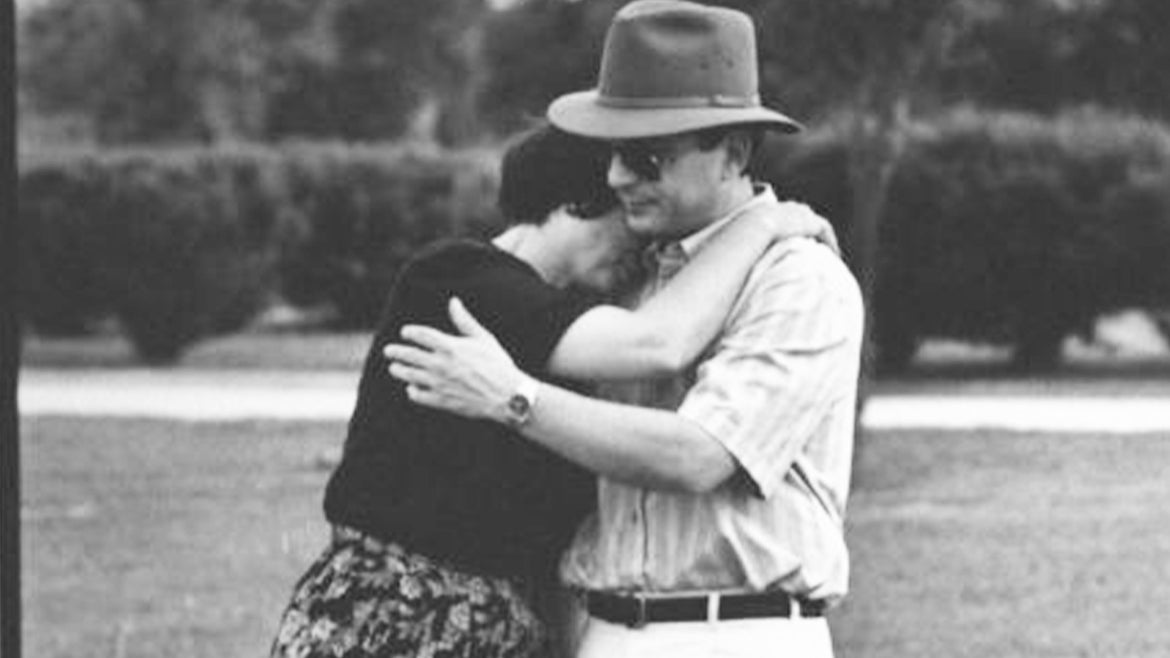The four girls, aged 13 to 17, were found brutally murdered in the back of a burned down yogurt shop in Austin, Texas.
On Dec. 6, 1991, what was initially believed to solely be a fire in an Austin, Texas, yogurt shop actually turned out to be the grisly murder scene of four teenage girls, whose bodies were discovered bound, gagged and shot once firefighters were able to contain the flames. The case would later come to be known as "the Yogurt Shop Murders."
Thirty years later, there is still no resolution in the brutal slayings of 13-year-old Amy Ayers, 17-year-old Eliza Thomas, 17-year-old Jennifer Harbison and her 15-year-old sister Sarah Harbison.
The last anyone heard of the four girls was that Jennifer and Eliza, who were employees of the franchise location, were closing up for the evening when Sarah and Amy were waiting for them inside the shop to finish up, KVUE reported. The I Can’t Believe It’s Not Yogurt location closed at 11 p.m. and the four had hoped to go to a slumber party after, according to the outlet.
Their bodies were later found by authorities responding to a fire at the shop just before midnight. All four were tied up, stripped down, stacked up and burned, according to “48 Hours”. Authorities later believed they were killed by robbers, who attempted to break into the store around closing and light a fire to cover their tracks, according to CBS Austin.
The case was especially difficult for investigators because of the fire, “48 Hours” reported, with the initial fire damaging much of the evidence, and water to put out the fire in addition to the added presence of firefighters on the ruining much of what was left.
In the 30 years since their brutal slayings, there has been plenty of developments that many hoped meant justice would be served, including when four men were arrested eight years after the brutal slayings took place.
But the case against the four men was controversial. Maurice Pierce, 16 years old at the time of the killings, was arrested at a mall with a .22-caliber revolver days after the killings and told authorities he had loaned the gun to a friend, Forrest Welborn, 15 years old at the time of the killings, who used the gun in the murders, the Austin Statesman reported.
In 1999, eight years later, the pair were arrested but ballistics tests later showed that that gun was "probably not" used in the murders, according to the outlet.
Pierce and Welborn never went to trial in the case. Charges were dropped against Welborn in 2000 after two grand juries declined to indict him, and Pierce spent three years in jail before he was freed in 2003, when prosecutors admitted there was not enough evidence to convict him, the Austin Statesman reported.
Their friends, Robert Springsteen and Michael Scott, were also arrested in 1999 based on statements they allegedly made to police interrogators, according to KXAN. Springsteen was eventually sentenced to death in the case, and his sentence was later commuted to life in prison. Scott was sentenced to life in prison.
In 2006, the Texas Court of Criminal Appeals overturned Springsteen’s conviction, and did the same with Scott’s in 2007, noting violations found in both of their alleged confessions and how they were used at trial by prosecutors, KXAN reported.
Three years later, new DNA technology revealed that another male may have been at the scene of the crime, but the FBI denied releasing the identity of the matching donor, citing a law that protects anonymous donors from having their identities disclosed, according to KXAN.
According to the Austin Statesmen, although the advanced technology found DNA on several crime-scene samples, none were linked to Springsteen, Scott, Welborn or Pierce. Prosecutors then dropped the charges against Springsteen and Scott due to a lack of evidence.
Today, it is still unclear what happened to those four girls whose lives were taken at the I Can’t Believe It’s Not Yogurt store three decades ago.
“These families deserve answers. And it’s just that one small break that we need.” said Alex Baber, director of Cold Case Consultants of America.
While his company has not investigated this specific case, Baber told Inside Edition Digital that he and his team have worked on many decades-old cold cases, and believe that it is now more possible than ever for cold cases like these to be solved, thanks to new forensic technologies.
“We’re kind of getting the upper hand, finally,” he explained. “The advancements in forensics in just the last ten years has been leaps and bounds. We have magnetic fingerprinting … we have new DNA advancements where we can identify the individual through genealogy, like the Golden State Killer. There’s blood things that has changed.”
Baber hopes the new tools can help law enforcement and agencies like his help families get closure.
“Having spoken with victims' families … they wake up every day and there’s a piece that’s missing. It’s a brutal life to live after the fact, and it’s just something that can never be reversed or rectified,” he said. “There is no closure. But there are answers. These families deserve answers.”
There are currently nearly 200,000 active cold cases dealing with homicide in the U.S., according to nonprofit Project Cold Case.






